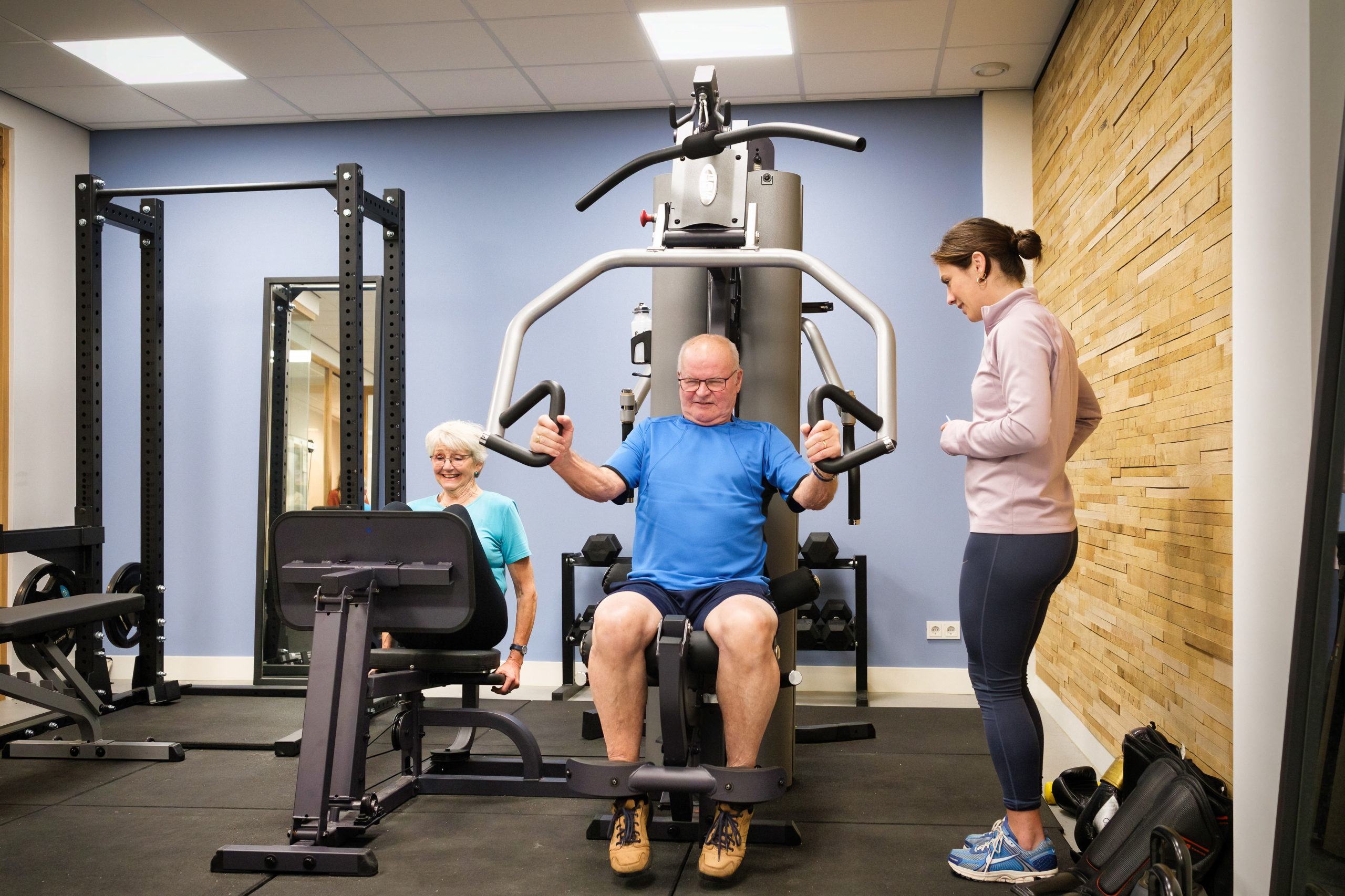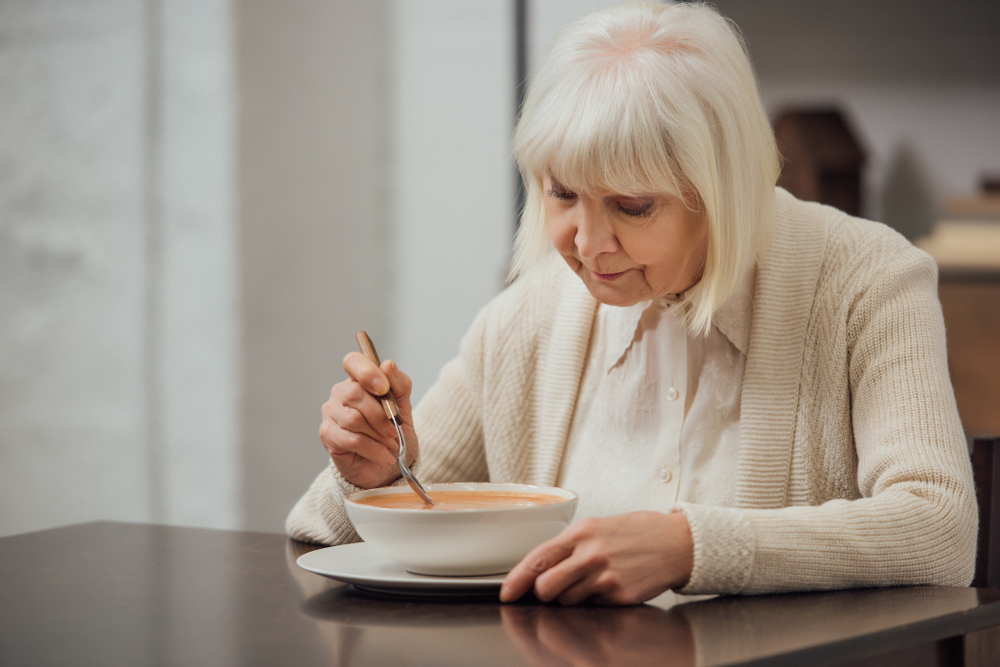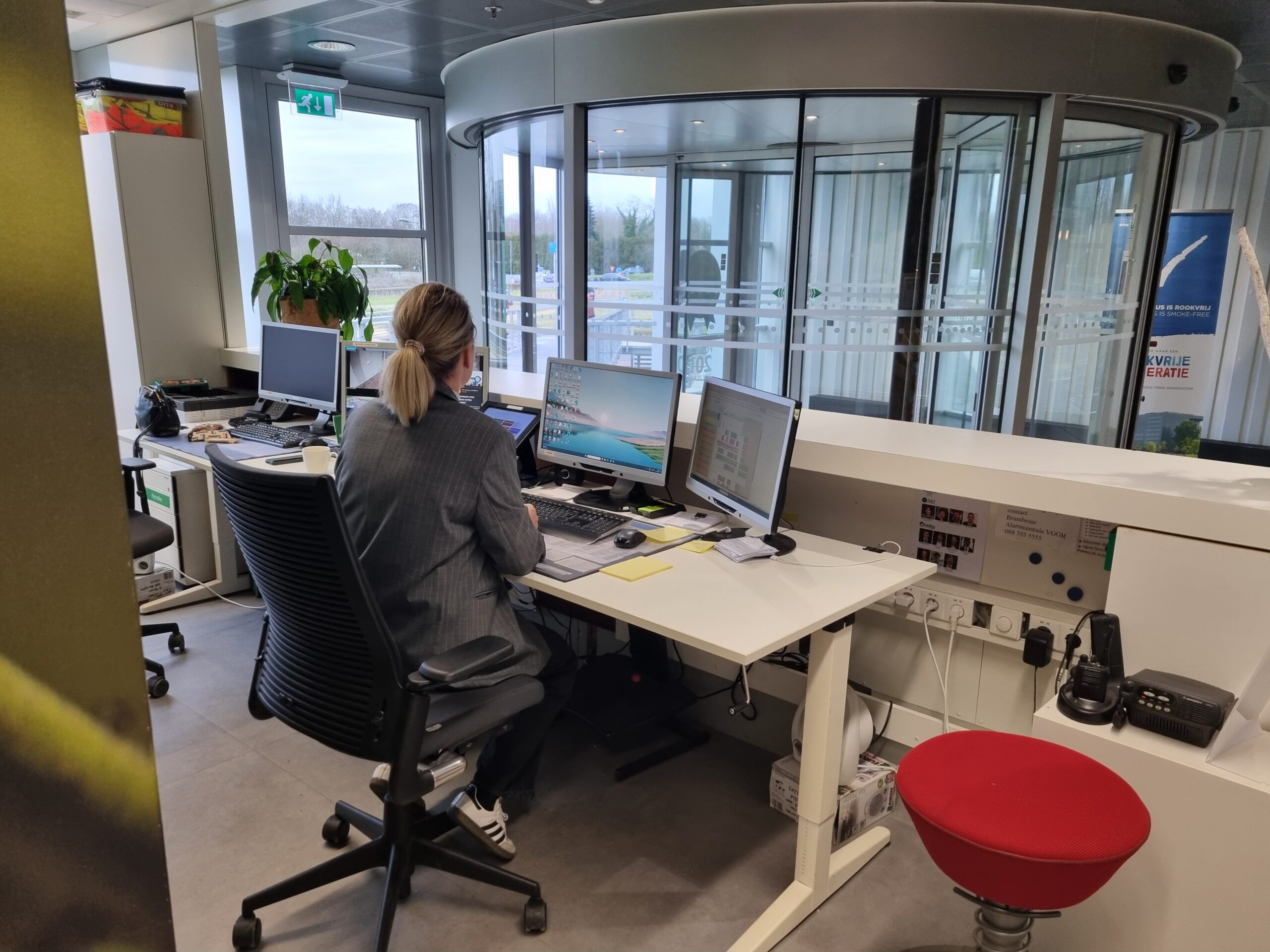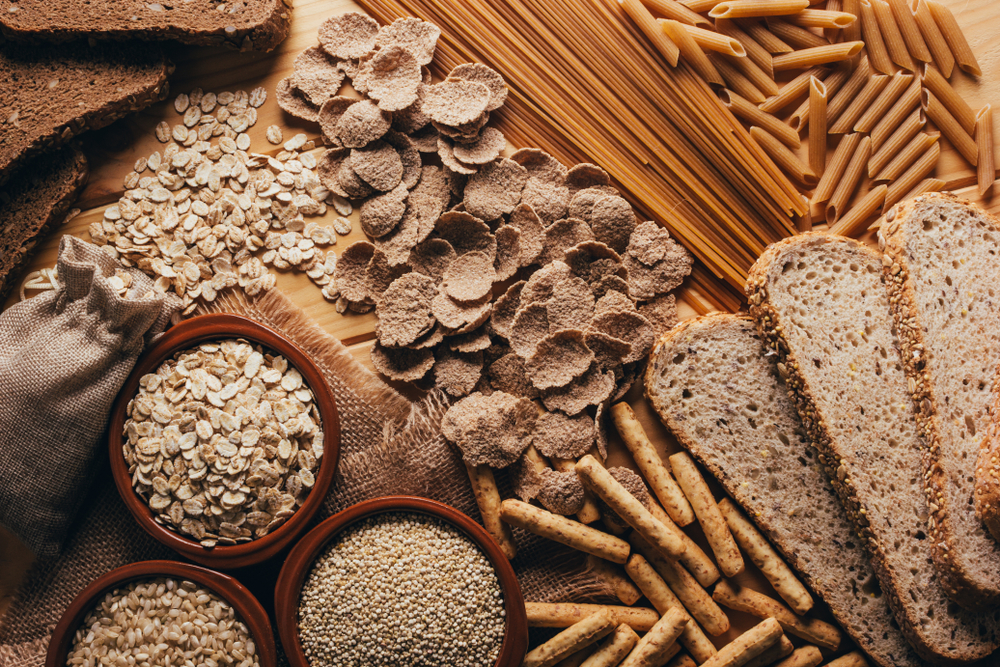Jacintha Domić, a PhD candidate in Human Nutrition and Health, seeks answers to the question of how a vegan diet affects the muscles and all-round health of people over the age of 65 and what role weight training can play. Resource took a look at the training and the tests subjects go through.
‘A more plant-based diet benefits health, but we believe that an entirely plant-based diet may provide less stimulation for the muscles, which is not what the elderly need’, Domić says. The PhD student believes that strength training may cancel out this negative effect.
To investigate this, she divided test subjects into three random groups. ‘One group eats as they normally would, including meat. The second group sticks to a vegan diet. The third group also eats vegan, but in combination with strength training twice per week.’
Training session
Theo (80), Anna (71) and Marion (76) are all in the most intensive group and have been coming to a sports facility in Wageningen twice a week for six weeks now. They perform six strength exercises under supervision, focusing mainly on their leg muscles.
‘You always learn something’
Anna (71) starts the session using the leg extension machine. While she diligently counts the number of repetitions, she explains why she decided to join this WUR study. ‘I enjoy it, you always learn something, and it also tells you whether you are healthy.’ Her face is flushed from the exertion, and she falls silent to focus on the exercise.
When her repetitions are done, she continues: ‘I also joined Jacintha’s previous study where we ate vegan for ten days and plant and animal-based for ten days. Now we cook for ourselves and can also consider what we want to eat. During the previous study, we had to go to the university for our meals. Now we do our own cooking. We are provided with recipes, information and ingredients, but I also like trying new recipes, which I get from the newspaper, for example.’
‘If it appeals to me, I register’
The oldest in the group is Theo (80). ‘Two sets of ten, right, coach?!’ he calls out, with a wink. But as soon as he starts his sets, he is quiet and concentrated. Sometimes, a cry of exertion escapes him. At the end of the set, he proudly says that he did a few extra repetitions. The trainer laughs and says: ‘Then we will add a few kilos next time!’
‘I’m feeling rather fit today’, Theo says. ‘Perhaps because it is Wednesday. The last time we worked out was on Friday, so my muscles have had time to rest and recover. The recovery time between Wednesday and Friday is much shorter.’ He feels he has become stronger, but is not entirely sure. ‘The trainers set the machines to the correct level of resistance, so I really have no idea how many kilos I’m lifting. But at the end of this week, we will have a new series of strength tests. Based on our maximum strength, they determine how many kilos we get to lift next week.’
For Theo, this is also not the first time he has joined a WUR study. ‘Once you are in the database, you get invited for new studies regularly. If it appeals to me, I sign up. This research targets older people, so the pool of potential participants is smaller.
‘I miss a piece of old cheese’
‘Unlike Theo and Anna, I live alone. That makes eating vegan easier, I think’, says Marion (76) during the day’s last exercise. ‘I have no one else to consider at home and simply leave out animal-based products. Others have to cook something with meat for their partners or may be tempted more easily because they still have cheese and eggs in their fridge. Hmmm, a piece of old cheese is something I miss. Vegan cheese is not as good.’
Marion expected to have increased her strength a lot more than now after six weeks of training. ‘Moving the weights still takes a considerable effort. But I believe the trainers surreptitiously increase the weight. And I have lost weight, which is not supposed to happen. I met an acquaintance I hadn’t seen in a while. They noticed my face is slimmer.’
Testing session
During testing the next Monday, there is a lot of bustle in the Helix waiting room. A new group of six test subjects will join Jacintha Domić’s study. They wear hand-written stickers on their clothing with a number that is linked to their data in the system. They begin the day with several tests. On Tuesday, they will return for muscle biopsies. After that,m they will start their vegan diet.
‘I hope a vegan diet will reduce my complaints’
‘I have trouble sleeping and concentrating’, says Gijs (72). He intended to do a detox for several weeks, during which he would eat only fruit and raw vegetables. ‘That is vegan, so I might as well combine the two.’ Domić hears him and intervenes. ‘The idea is to eat as similar as possible to your normal diet, but vegan. If you change too many factors at once, we will not be able to determine the effect of a plant-based diet.’ Gijs understands and decides to delay the detox. ‘Vegan food will stimulate my body differently, perhaps sufficiently. I hope it reduces my complaints.’
It is the first time Gijs has joined a WUR nutrition study. ‘But I participated in a sleeping study in Amsterdam. They hooked me up to all sorts of measuring equipment, which was quite intensive. This is very different. These tests also give you insight into your health.’
His twelve weeks of plant-based eating begin on Tuesday. In the waiting room, other participants discuss whether you can still go out for dinner as a vegan. Gijs says that should not be a problem. ‘Many places serve coffee with oat milk and some restaurants have a complete range of vegan dishes. There is one in Nijmegen, for example.’ Some participants get busy discussing plans to dine there at Christmas because the holiday season falls within the twelve vegan weeks. Gijs believes that will be difficult: ‘It is a popular restaurant that is generally fully booked ahead of time. But perhaps Christmas of 2024 is an option?’ he says jokingly.
‘Am I still allowed to eat this?’
Corrie (71) is a first-time participant in a scientific study. ‘I am interested and I hope I may be able to help others.’ Unlike many of the other participants, Corrie is not retured. ‘I have my own beauty salon, and I volunteer. That required some planning now that I must visit the university for these tests.’
‘Well, look at that. Not bad at all for someone my age’, says Corrie. She just did a squeezing test, the last in the series of tests this Monday morning. While the research assistant checks Corrie’s number before entering her results into the computer, she says: ‘Well, yes, a number is rather impersonal.’ On Tuesday morning, Corrie returns for more tests. She strips down to her underwear and lies on the table. A doctor will take a biopsy of her upper leg muscles. She starts with an anaesthetic, which works within minutes. The doctor then makes a small cut in Corrie’s skin to access the muscle. Corrie feels nothing.
‘I think the hardest part will be keeping coffee and pastries at bay’, says Corrie, while she starts eating her vegan cheese sandwich that came with her breakfast package. ‘I will have to skip them for the next three months. But this vegan cheese is quite nice and tastes a little like the Leerdammer cheese I normally eat.’
When a research assistant asks Corrie whether she has any questions about the vegan diet, she takes a clean container of cottage cheese from her bag. ‘Am I still allowed to eat this? I enjoy having some with crackers for breakfast.’ The research assistant has disappointing news: cottage cheese is not vegan, and there is no vegan alternative. ‘There is a vegan dairy spread hough. Perhaps you can give that a try?’
VOLD
Jacintha Domić’s study is called Vold, after the V for vegan and the word “old”. Domić researches the effect of a vegan diet on muscles and the general health of older people. A total of 72 test subjects are required, and half of the places have been taken. Participants do not all start at the same time but in small consecutive groups. The study takes between 14 to 15 weeks in total. Participants are provided with a reimbursement fee of 480 euros. Those who are asked to also do the strength exercises will be given an additional 100 euros. The study is government-funded.

 Marion (76) and Theo (80) are part of the most intensive research group and visit a sports facility in Wageningen every Wednesday and Friday. They have been doing so for six weeks. Photo Guy Ackermans.
Marion (76) and Theo (80) are part of the most intensive research group and visit a sports facility in Wageningen every Wednesday and Friday. They have been doing so for six weeks. Photo Guy Ackermans. 

